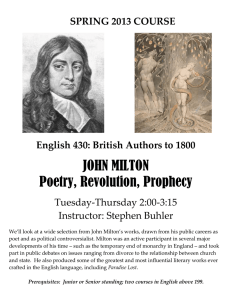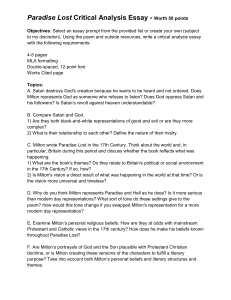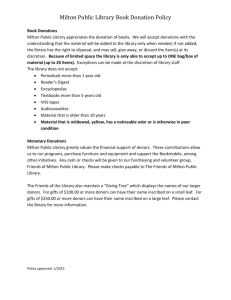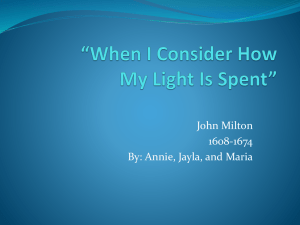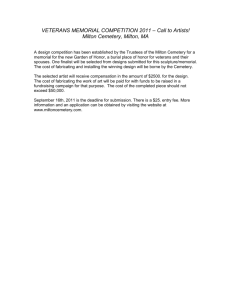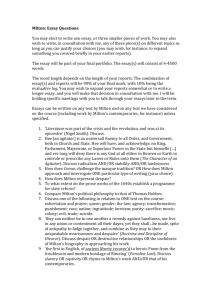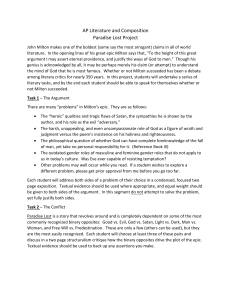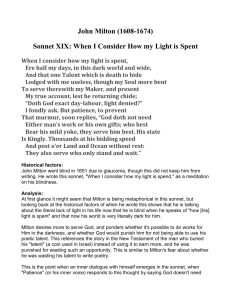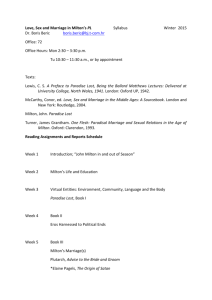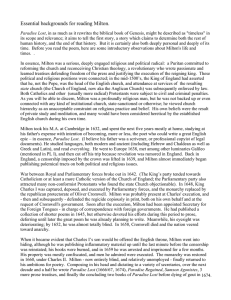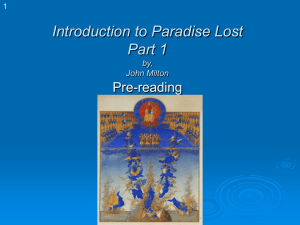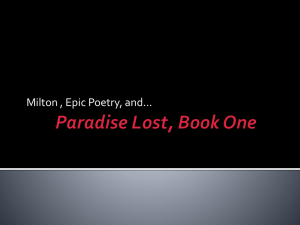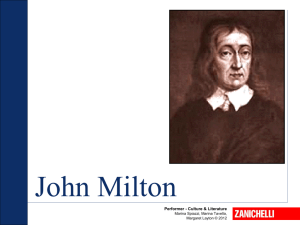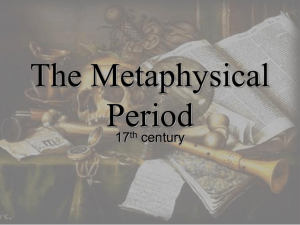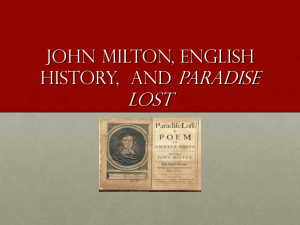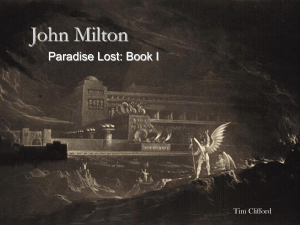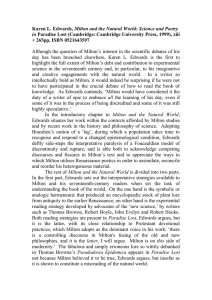Dialectical Journals (AKA “Two Column Notes”
advertisement
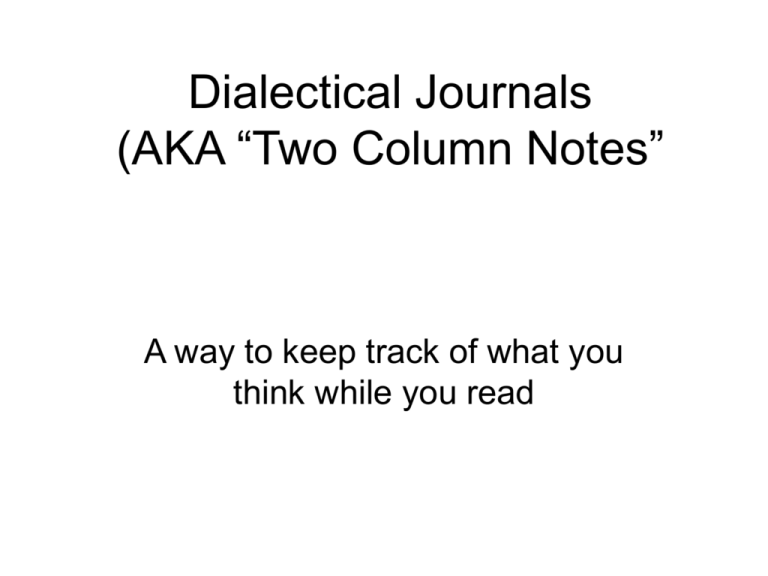
Dialectical Journals (AKA “Two Column Notes” A way to keep track of what you think while you read Requirements • Number all of your pages • Entries must consist of a quote or very close paraphrase and sufficient commentary. Each entry therefore has 2 parts. • Each entry must include the page number for the quote. For the very first entry, you must include the author’s name as well. Requirements (continued) • The is no required number of entries, though you definitely should write at least one entry per reading session. • Write neatly—I can’t grade it if I can’t read it. • I will provide you a rubric in the very near future. Requirements (cont.) • You must create a log on the first page(s) that lists the date, author, title, and pages read for each reading session. i.e. 6/25/09 Milton, John. Paradise Lost. Pp. xiii-70). “When I beheld the Poet blind, yet bold,/In slender book his vast design unfold…” (Marvell, Prologue) • The author shows the irony of the brilliant mind of Milton here—he was blind, but he saw more, figuratively speaking, than others. He was more insightful, more brilliant. “His vast design” seems to refer to the poet rather than God himself, implying a close connection between the poet and God and perhaps suggesting that God himself gave Milton his ideas. • “That to the height of this great argument/I may assert eternal Providence,/And justify the ways of God to men,” (Milton 11). • Here the author suggests that he intimately knows the ways of God and can communicate that to the reader. Again, we are given a characterization of the author/narrator as a mouthpiece of God, so to speak, and one who has access to His divine knowledge. Also, given the discussion in the introduction of the book, this suggests that the poet will show the reader truth through metaphor rather than simple explanation. • “And re-assembling…consult how we may henceforth most offend our enemy; our own loss how repair; How overcome this dire calamity; What reinforcement we may gain from hope; If not, what resolution from despair,” (Milton 17). • In this early characterization of Satan, we see the polarized, binary way that he sees the world. He labels God “enemy” although God expelled them not as much from a sense of anger as to teach a lesson. Hope and despair are contrasted, but are strangely equal in his view. In fact, Milton seems to attribute all that is “Satanic” in the world to the sense of gaining resolution from despair. Still, while we see the flaws in Satan’s logic, we still feel for him, for he has been driven from the side of the God that he once loved— Lucifer may, in Milton’s view, be a tragic hero—his hubris is clear and his fatal flaw is his unreasonable sense of fairness and justice, for this is what caused him to rebel against God in the first place. Grading • You will be scored on: – Depth of thought – Explanation and completeness of ideas
